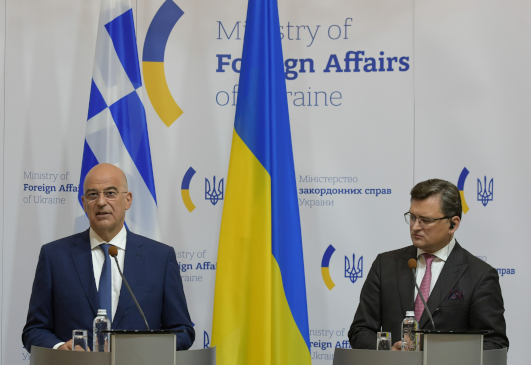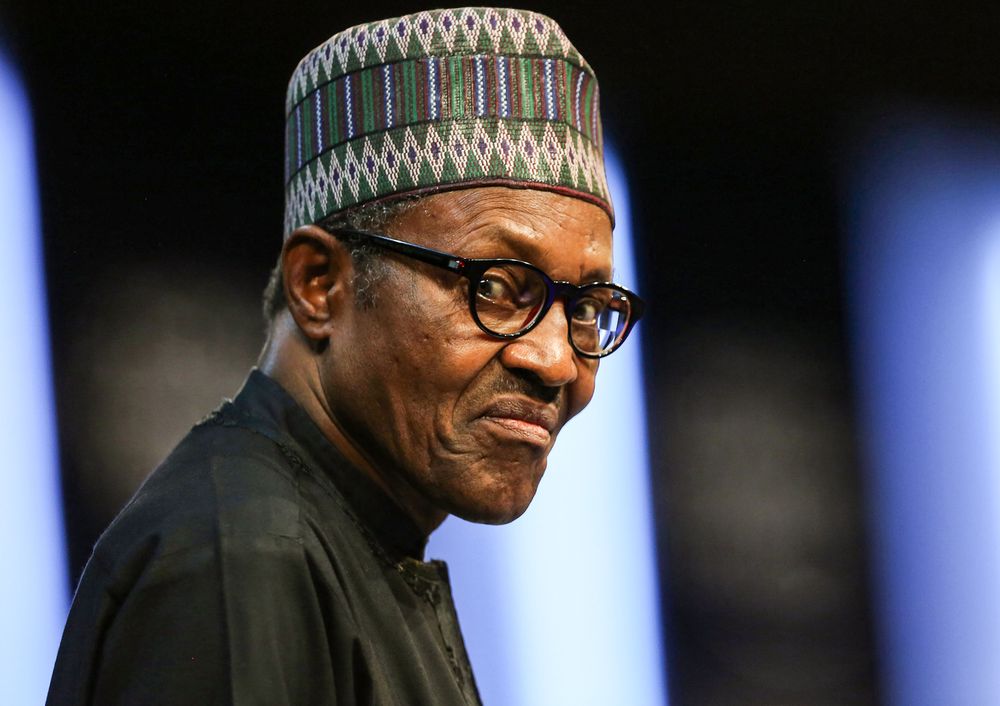 “It is a great pleasure to be here in Kiev today, four years after the last visit of a high-ranking Greek official to the Ukrainian capital.
“It is a great pleasure to be here in Kiev today, four years after the last visit of a high-ranking Greek official to the Ukrainian capital.
Certainly, this is a symbolic year. It is a symbolic year for Ukraine, which is celebrating the 30th anniversary of its independence and it was a great pleasure for me to participate in the conference previously and to have the opportunity to express our views. It was a great honour both for me and my country.
It is also a symbolic year because Greece celebrates the 200th anniversary of the beginning of our War of Independence.
This creates a solid foundation for our ties, the ties of Greece and Ukraine, which date back to antiquity. But of course, no Greek, since childhood, can forget that in Odessa, which I will visit immediately afterwards, the Filiki Etairia [Society of Friends] was founded with the purpose to organize the Greek Revolution.
During our meeting earlier we discussed our bilateral relations and we will continue during lunch.
A connecting element is the historical presence of the Greek Diaspora in Ukraine, which today numbers over 100,000 inhabitants, and we hope for the safeguarding of their rights, as I discussed previously with the Minister. It is an integral part of the Ukrainian society and a bridge between our two countries and our two peoples. We are also very happy that the Greek language and our culture are taught in Ukrainian Universities.
I would also like to unreservedly express my thanks for the contribution of the Ukrainians to the development of the Greek economy. About thirty thousand Ukrainians – a very significant number – work in Greek-owned vessels, in the largest merchant fleet in the world. We greatly appreciate their contribution.
And of course, thousands of our Ukrainian friends visit our country every year. I hope that we will welcome them again this year. As you know, we recognize the vaccination certificates, as I mentioned earlier to the Minister.
But we can achieve much more. We can strengthen our bilateral ties and we can strengthen our trade. And of course, we can engage in an honest, constant and ongoing dialogue, because both countries face challenges.
I would suggest that the basic principle for both countries be this, which is a standard practice for Greece: the strict adherence to International Law, the strict adherence to the peaceful settlement of disputes, the strict adherence to abstaining from threats or the use of force.
As I said before, I am saying it now and I will keep saying it at the behest of Prime Minister Kyriakos Mitsotakis, Greece supports the independence, sovereignty and territorial integrity of Ukraine within its internationally recognized borders, and this has always been Greece’s position.
This is what we firmly reiterate in all the international fora and organizations in which we participate, including the European Union, NATO and the OSCE, and this is what we will continue to do regardless of the cost to us, because it is a matter of principle.
We can become the ideal ally and a source of assistance to Ukraine in its European course because we want to strengthen these relations. We are a country on the east side of the European Union and Ukraine is in proximity to us. At this stage, if we were to formulate an opinion, we would suggest that Ukraine makes full use of all the provisions of the Association Agreement and continue what its government is already doing, namely the necessary reforms.
We also support Ukraine’s choice to strengthen ties with NATO. We are actively participating in the safeguard measures for Ukraine through our air base in Aktio, the periodic presence of our Navy in the Black Sea and in general with the military forces we contribute as a permanent member of NATO.
As I always want to be honest, I must say we are surprised when Ukraine does not align itself with the decisions of the Union’s common foreign policy – unlike all countries which pursue the strengthening of their ties with the European Union – especially in the case of actions that violate the sovereignty and sovereign rights of the member states of the Union and are contrary to International Law. After all, I think this is the basis on which Ukraine itself seeks support from the international community to protect its own rights and has our support on it. We hope that Ukraine will soon be in line with the European foreign policy.
My dear Dmytro, we still have a lot to say. It will be my great pleasure to continue our discussion and to welcome you very soon to Athens in a building as beautiful, but not as majestic as the one in which you do me the honour of welcoming me.
Thank you very much for the cordial welcome and reception”.
JOURNALIST: I wanted to ask the Ministers if they discussed on the strengthening of the status concerning the rights of the Greek Diaspora in Ukraine and whether there will be any specific measures.
N. DENDIAS: Thank you for the question and I thank my dear colleague for the assurance he gave you. We have discussed this issue privately and I would like to reiterate the assurance he has just given to you and which he has previously given to me personally – and I say this to his credit – that there is no legislation, either previous or next, which restricts the rights of the Greek minority in Ukraine. Instead, the services of a member of this minority are employed for the drafting of the bill for the extension and consolidation of the rights of the minority, which, as I said before, is a bridge of friendship between the two states and the two peoples and the embodiment of the historical presence of Hellenism in the Black Sea for thousands of years.


